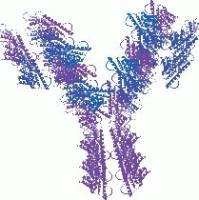Neural Transplantation in Parkinsonian Primates
互联网
624
As evidence becomes available from long-term studies of the effects of neural transplants in patients with Parkinson’s disease (PD), it is clear that grafts of embryonic mesencephalon into the striatum can relieve parkinsonian symptoms, and be of therapeutic benefit to patients (Defer et al., 1996 ; Freeman et al., 1995 ; Wenning et al., 1997 ). The debate now is whether the time is right, on the basis of these positive reports, to extend the clinical trials and transplant many more patients, or whether large-scale studies should not be attempted until a number of questions related to improving graft survival and clinical outcome have been resolved (Bj�rklund, 1998 ; Dunnett, 1997 ; Lindvall, 1997 ; Peschanski et al., 1998 ). The continued importance of animal studies in the development of neural transplantation techniques is well recognized (Bj�rklund, 1998 ; Kordower et al., 1998). The role of primate studies is to address those issues that cannot readily be resolved in rodents.






